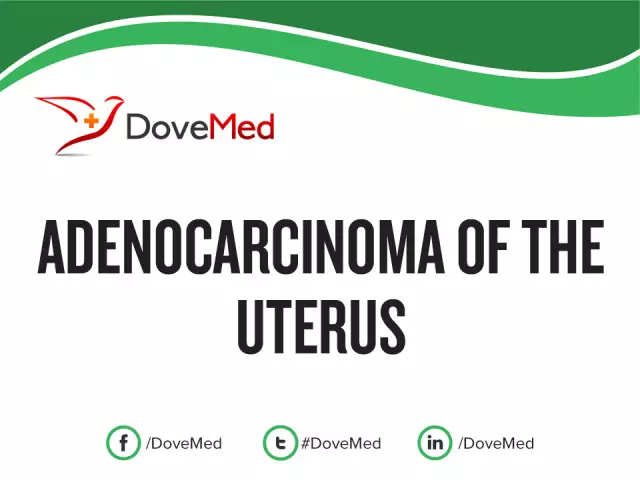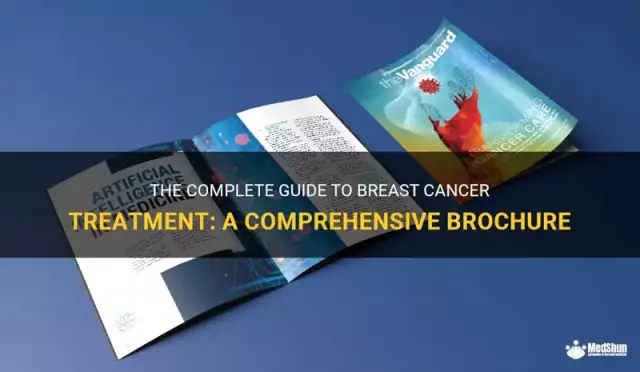- Author Rachel Wainwright wainwright@abchealthonline.com.
- Public 2023-12-15 07:39.
- Last modified 2025-11-02 20:14.
Stomach cancer

Stomach cancer is a dangerous malignant disease localized on the gastric mucosa. It ranks 2-3 third in terms of prevalence among other cancers. More often stomach cancer is usually found only in malignant neoplasms of the lungs and breast.
The factors that provoke stomach cancer are quite diverse. Here and the wrong diet, and alcohol abuse, and smoking, and an infectious factor, and simply a combined negative impact of the environment.
Stomach cancer symptoms are more commonly diagnosed in people over the age of 50. Annual prophylactic screening examinations are very important to diagnose the first signs of stomach cancer. Only earlier detection of symptoms of stomach cancer and timely initiation of treatment gives the most optimistic prognosis for stomach cancer, up to complete healing.
Stomach cancer symptoms
At an early stage of stomach cancer, the disease does not manifest itself in any way, so its detection is possible only during a routine medical examination. As a rule, patients come to the office of a gastroenterologist with certain complaints about their well-being and obvious symptoms of stomach cancer or other pathology of the digestive tract.
The first signs of stomach cancer are mild and haphazard. The patient often takes them for an exacerbation of another chronic disease or seasonal malaise. In the worst case, at the first signs of stomach cancer - discomfort or pain "in the stomach" - the patient is self-medicating with folk remedies for several months. Although it is this time that is crucial for achieving the best result in the treatment of stomach cancer.
With the growth of the tumor, aching pain on an empty stomach is added to the other signs of stomach cancer. Various drugs to reduce acidity help to relieve the patient's condition for a short time, therefore, the first signs of stomach cancer are often mistaken for gastritis or the onset of peptic ulcer disease.
Loss of appetite and weight loss are also common symptoms of stomach cancer. Patients may be selective in food, feel aversion to certain foods, for example, meat or milk. In the late stage of gastric cancer, the disease can manifest itself as dark-colored vomiting and dark-colored loose stools. These symptoms of stomach cancer indicate internal bleeding, so the patient needs urgent hospitalization.
When the tumor is localized in the upper part of the organ, a sign of stomach cancer is difficulty swallowing. With total damage to the stomach by a tumor and metastases, the walls of the stomach become inelastic, and the patient is quickly saturated, feels a constant heaviness in the abdomen. Signs of stomach cancer at this stage of the disease also include exhaustion caused by systemic vomiting and obstruction of the stomach, yellowness of the skin, an increase in the abdomen (ascites), and lymph node thickening.
Stages of stomach cancer
In the classification of the stages of gastric cancer, several signs are used: the cellular structure of the tumor, the type of its growth, the shape, size and prevalence of metastases in the human body. Accurate determination of the stage of stomach cancer allows prescribing adequate therapy for the disease and making a prognosis as objectively as possible.
The diagnosis of stage zero stomach cancer is rare. With it, a malignant tumor has a minimum size and is located in the surface layers of the gastric mucosa. Stages 1-4 of stomach cancer are characterized by a deeper invasion of the tumor into the walls of the organ and the spread of metastases to nearby and distant lymph nodes and organs. The best prognosis for gastric cancer with a stable cure in 90% of cases is observed in the first stage of gastric cancer.
The likelihood of complete healing or remission of the disease depends not only on the stage of stomach cancer, but also on its form. The most aggressive are the undifferentiated forms of the tumor. They are characterized by a high growth rate, rapid metastasis and, consequently, the worst prognosis. Highly differentiated tumors are distinguished by slow growth and low severity of metastasis.
Diagnosis of stomach cancer
In the early diagnosis of gastric cancer, a blood test for specific tumor markers CA 19-19 and CA 72-4 is used. A precancerous condition of a patient with early signs of gastric cancer can also be detected during endoscopy using dye markers.
In the later stages of gastric cancer, biopsy with further study of the collected material, radiography, computed tomography, magnetic resonance imaging, and laparoscopic diagnostics are additionally used.
Stomach cancer treatment

Treatment of stomach cancer is based on 3 main methods: surgical, chemotherapy and radiation. The radical nature of the operation depends on the stage of the stomach cancer. Surgical treatment of gastric cancer is not performed only with inoperable tumors and the presence of multiple complications caused by extensive metastasis. In this case, the patient is prescribed preoperative, so-called nonadjuvant chemotherapy. After the tumor reaches an operable size, the patient is sent for surgical treatment of stomach cancer.
In the surgical treatment of gastric cancer, various types of resections are used: subtotal proximal or digistal with removal of ¾ part of the stomach with fatty tissue and lymph nodes or gastrectomy with complete removal of the stomach and adjacent parts of the intestine and esophagus. Palliative treatment of gastric cancer with inoperable tumors is designed to temporarily improve the patient's condition and eliminate the obstruction of the alimentary tract.
Treatment of gastric cancer in the postoperative stage is complemented by chemotherapy. To prevent recurrence of the disease, it is used even if the tumor mass has been removed completely. With extensive metastasis of gastric cancer and damage to the lymph nodes, chemotherapy significantly reduces the rate of development of the disease, destroying most of the cells of the tumor tissue.
Radiation irradiation in the treatment of stomach cancer is rarely used due to the low efficiency of the method for this type of tumor and a large number of complications.
YouTube video related to the article:
The information is generalized and provided for informational purposes only. At the first sign of illness, see your doctor. Self-medication is hazardous to health!






